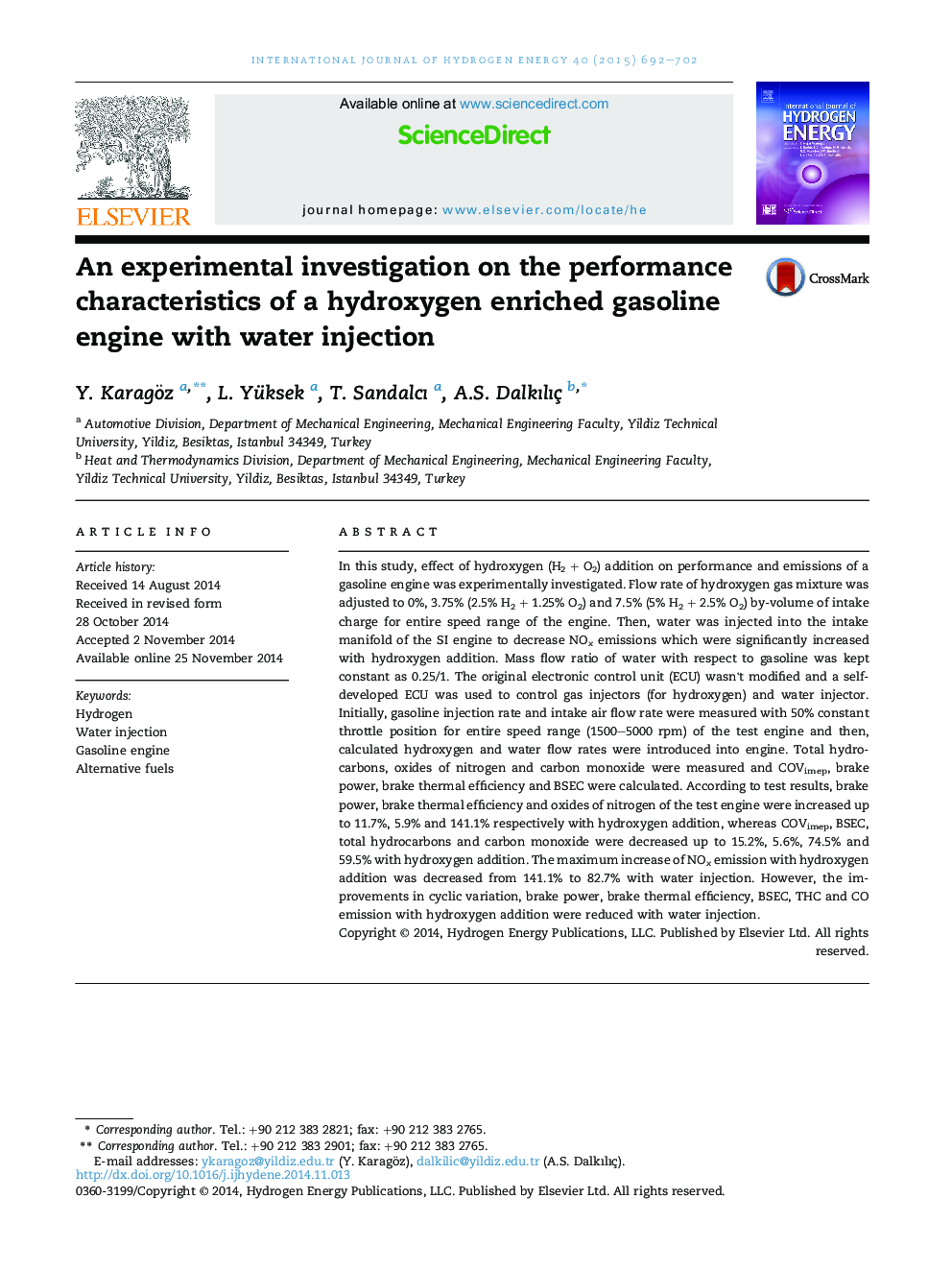| Article ID | Journal | Published Year | Pages | File Type |
|---|---|---|---|---|
| 7717377 | International Journal of Hydrogen Energy | 2015 | 11 Pages |
Abstract
In this study, effect of hydroxygen (H2Â +Â O2) addition on performance and emissions of a gasoline engine was experimentally investigated. Flow rate of hydroxygen gas mixture was adjusted to 0%, 3.75% (2.5% H2Â +Â 1.25% O2) and 7.5% (5% H2Â +Â 2.5% O2) by-volume of intake charge for entire speed range of the engine. Then, water was injected into the intake manifold of the SI engine to decrease NOx emissions which were significantly increased with hydroxygen addition. Mass flow ratio of water with respect to gasoline was kept constant as 0.25/1. The original electronic control unit (ECU) wasn't modified and a self-developed ECU was used to control gas injectors (for hydroxygen) and water injector. Initially, gasoline injection rate and intake air flow rate were measured with 50% constant throttle position for entire speed range (1500-5000Â rpm) of the test engine and then, calculated hydroxygen and water flow rates were introduced into engine. Total hydrocarbons, oxides of nitrogen and carbon monoxide were measured and COVimep, brake power, brake thermal efficiency and BSEC were calculated. According to test results, brake power, brake thermal efficiency and oxides of nitrogen of the test engine were increased up to 11.7%, 5.9% and 141.1% respectively with hydroxygen addition, whereas COVimep, BSEC, total hydrocarbons and carbon monoxide were decreased up to 15.2%, 5.6%, 74.5% and 59.5% with hydroxygen addition. The maximum increase of NOx emission with hydroxygen addition was decreased from 141.1% to 82.7% with water injection. However, the improvements in cyclic variation, brake power, brake thermal efficiency, BSEC, THC and CO emission with hydroxygen addition were reduced with water injection.
Related Topics
Physical Sciences and Engineering
Chemistry
Electrochemistry
Authors
Y. Karagöz, L. Yüksek, T. Sandalcı, A.S. Dalkılıç,
